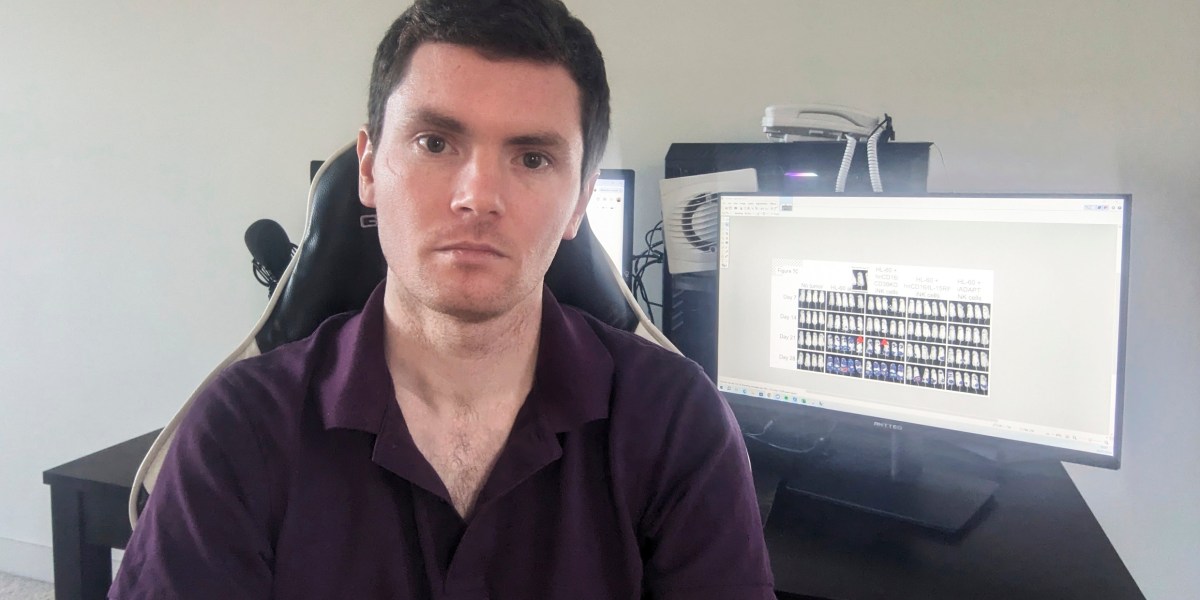California microbiologist Elisabeth Bik, 57, has been sleuthing for a decade. Based on her work, scientific journals have retracted 1,133 articles, corrected 1,017 others and printed 153 expressions of concern…
Incredible, she has some enemies.
Hahah what a hobby, using image processing and probably AI to check old papers that predated the tools. Kinda like using DNA to solve old crimes
Why do articles like this feel the need to include the blogger’s age?
To remind other 32+ year olds how little we’ve accomplished in our lives.
It’s how it made me feel :(
that was unnecessary, FeelsBadMan
I, 69, don’t know.
32s not even a notable age… If it were 17 or 85 I guess it’d be newsworthy but not 32
@bl4kers @floofloof I think it’s interesting that it’s just a 30 something dude.
The things he’s found aren’t super detective stuff either, he’s taken an interest, found a few pictures that look suspicious, looked some more and wrote about it. Something anyone can do.
I find that motivating.
Really embarrassing also for the journals that published the papers – and which are as guilty. They take ridiculously massive amounts of money to publish articles (publication cost for one article easily surpasses the cost of a high-end business laptop), and they don’t even check them properly?
Journals are the cancer of the science world
Why would they? They get the money. I feel like that system is just prime corruption/malpractice and leads to crap like this.
It’s for profit all the way through
You have a lot of shit in the journals. I read about autism for example. I can’t count how many article with restrain and basic human right abuse are published. And, it continues in 2024.
It’s seriously depressing to see this BS and other pseudo-scientific text published.
Oh, they don’t pay the peer reviewers. That would cut their profit margins waaaay too much.
Why would they check them properly? These are for profit organizations. Their only job is to generate profit, not check articles for errors. The Lancet Journal is owned by a 20 billion dollar corporation.
@[email protected] @[email protected] @[email protected] @[email protected] Fully agree with you all! Very sad. And shows how scientists are either idiots or money-seekers.
And shows how scientists are either idiots or money-seekers.
No.
They’re working in a system which incentivises fraud. Those who successfully commit fraud are a drain on everyone else, as are the administrators, publishers and corporations who create the perverse incentives.
That’s really embarrassing, but not surprising that a medical institution would lie and cheat. The profit motive is destroying scientific research.
If you find this interesting, the Freakonomics podcast just put out a really good series on academic fraud. I highly recommend it.
Seconding this recommendation! I caught parts of it on the radio last weekend and the week before. It was way more fascinating than I expected…
Thanks, found it.
This is the best summary I could come up with:
Dana-Farber Cancer Institute, a Harvard Medical School affiliate, announced Jan. 22 it’s requesting retractions and corrections of scientific papers after a British blogger flagged problems in early January.
They use special software, oversize computer monitors and their eagle eyes to find flipped, duplicated and stretched images, along with potential plagiarism.
In a Jan. 2 blog post, Sholto David presented suspicious images from more than 30 published papers by four Dana-Farber scientists, including CEO Laurie Glimcher and COO William Hahn.
The blog post included problems spotted by David and others previously exposed by sleuths on PubPeer, a site that allows anonymous comments on scientific papers.
Technology has made it easier to root out image manipulation and plagiarism, said Ivan Oransky, who teaches medical journalism at New York University and co-founded the Retraction Watch blog.
Some may intentionally falsify data, knowing that the process of peer review — when a journal sends a manuscript to experts for comments — is unlikely to catch fakery.
The original article contains 792 words, the summary contains 158 words. Saved 80%. I’m a bot and I’m open source!
I thought this was The Onion, at first. It’s every internet commenter’s dream headline!
I wanna do this detective work for a living!
Do they pay him though?
Someone could pay me. I just need enough for training, equipment, and living.
People still blog? People still read blogs?
Blogs are a good idea. We should go back to them instead of being dependent on social media.
Setting up RSS readers this week 🤓
no god please, i hate googling something and the first 12 results are all blogs that take forever to get to the point and then give a bad answer
i don’t think i could live any longer if i didn’t have “site:reddit.com” or “site:stackexchange.com” etc. to filter out most of the garbage
i hate googling something and the first 12 results are all blogs that take forever to get to the point and then give a bad answer
That’s because mass-produced/AI generated shit “content” has been winning the Search Engine Optimization cat and mouse game for a while now.
don’t use google.
I hope so because I am working on 2 of them. One for a dumb minecraft mod pack I am building and the other a mix mash of science topics ranging from tutoring resources, commentary on current events in science and on how science is reported in media.
Do you have analytics data? I’m curious how many visitors you get.











